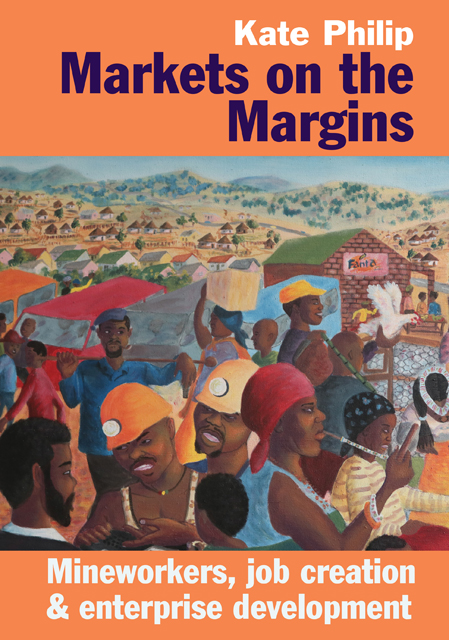Book contents
- Frontmatter
- Contents
- List of Illustrations
- Preface
- Acknowledgements
- Abbreviations
- 1 Introduction: Setting the scene
- 2 The 1987 Mineworkers Strike
- 3 Conflict in the Transkei
- 4 Power Struggles in Lesotho
- 5 Co-ops Capture the Imagination
- 6 The NUM Co-op Programme
- 7 Challenges of Democratic Ownership & Control
- 8 Rethinking Degeneration in Co-op Theory
- 9 The Mineworkers Development Agency’s Development Centre Strategy
- 10 Small Enterprise: In the shadow of the core economy
- 11 A New Enterprise Development Paradigm
- 12 Market Development – or a New ‘Anti-Politics Machine’?
- 13 Breaking into Higher-value Markets in the Craft Sector
- 14 Marula: Product innovation & value chains
- 15 Implications for Enterprise Development Strategy
- 16 If Markets are Social Constructs, how Might we Construct them Differently?
- Select Bibliography
- Index
2 - The 1987 Mineworkers Strike
Published online by Cambridge University Press: 20 January 2023
- Frontmatter
- Contents
- List of Illustrations
- Preface
- Acknowledgements
- Abbreviations
- 1 Introduction: Setting the scene
- 2 The 1987 Mineworkers Strike
- 3 Conflict in the Transkei
- 4 Power Struggles in Lesotho
- 5 Co-ops Capture the Imagination
- 6 The NUM Co-op Programme
- 7 Challenges of Democratic Ownership & Control
- 8 Rethinking Degeneration in Co-op Theory
- 9 The Mineworkers Development Agency’s Development Centre Strategy
- 10 Small Enterprise: In the shadow of the core economy
- 11 A New Enterprise Development Paradigm
- 12 Market Development – or a New ‘Anti-Politics Machine’?
- 13 Breaking into Higher-value Markets in the Craft Sector
- 14 Marula: Product innovation & value chains
- 15 Implications for Enterprise Development Strategy
- 16 If Markets are Social Constructs, how Might we Construct them Differently?
- Select Bibliography
- Index
Summary
In Harold Wolpe’s classic work Capitalism and Cheap Labour-Power in
South Africa: From Segregation to Apartheid (1972) he explains how subsistence agriculture in the bantustans contributed to reducing the costs of labour on the mines:
When the migrant labourer has access to means of subsistence, outside the capitalist sector, as he does in South Africa, then the relationship between wages and the cost of the production and reproduction of labour-power is changed. That is to say, capital is able to pay the worker below the cost of his reproduction. In the first place, since in determining the level of wages necessary for the subsistence of the migrant worker and his family, account is taken of the fact that the family is supported, to some extent, from the product of agricultural production in the Reserves, it becomes possible to fix wages at the level of subsistence of the individual worker. (Wolpe 1972, p. 434)
Over time, however, Wolpe anticipated that pressure on land in the bantustans would place pressure on the contribution that subsistence agriculture could make, that this would increase conflict, not only over wages but over the entire structure of the society, and that such conflict would be met by political measures that would in turn generate a political reaction (Wolpe 1972, p. 444).
The 1987 Mineworkers Strike for a living wage represented a critical moment in such a cycle. By then, the crisis of rural reproduction was acute. Arguably, a tipping point had been reached in bantustans such as the Transkei. Not only was the rural economy unable to fulfil its designated role in underpinning cheap wages, but rural households had become dependent on cash transfers from the mines and the urban economy.
These pressures contributed to NUM’s remarkable growth and made the call for a living wage resonate deeply. A mere five years after NUM was formally launched in 1982, it had become South Africa’s largest trade union, able to organise the biggest industrial strike in South African history:
The massive 1987 mineworkers strike, the biggest and costliest wage dispute in the history of South Africa no doubt marks one of the highpoints in the development of militant progressive worker struggles here.
- Type
- Chapter
- Information
- Markets on the MarginsMineworkers, Job Creation and Enterprise Development, pp. 17 - 23Publisher: Boydell & BrewerPrint publication year: 2018



